How to Control Bird Hormones
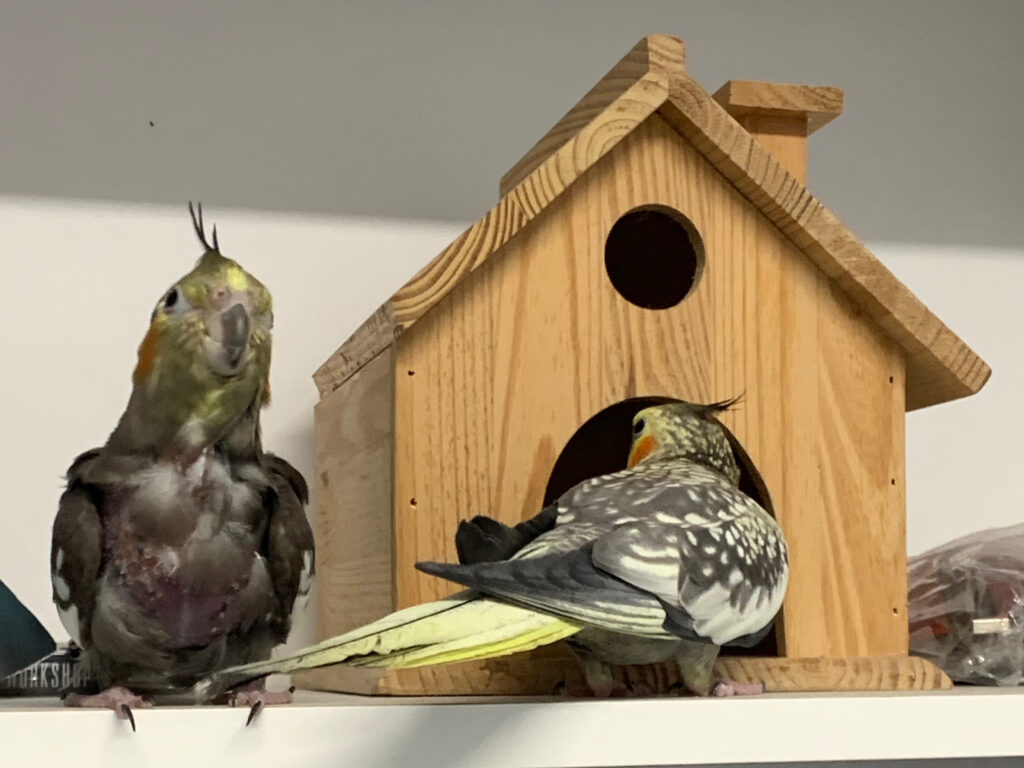
Bird Hormones get blamed for a lot of undesirable behaviours in our pet birds. From biting, to regurgitating - it's easy to shrug off unwanted aggression as simply being due to the time of the year. The reality though? Hormones are a complex behavioural topic and there's a lot of misinformation about them out there. This is a complex topic, so it's worth checking the "hormones" blog category on this site (and others) to read other posts that will expand on different aspects of the topic.
Recognising Hormonal Behaviours
If you are wanting to control your bird's hormonal behaviour, you need to be able to recognise it. The hard part of this is it can look different, in different breeds and there are going to be some things that are specific to your own bird, based on behaviours they have learned during their life.
I have a client with a Hahns Macaw that actually says: "Oh you want some!" Her owner told me she says that and then seems to turn her back to the owner with what they interpret to be a "Come on, climb on!" look. This seems to be a behaviour learned in a previous home.
Some general things to watch for:
- Nest building behaviours. This could be anything from shredding their newspaper, scratching and digging (usually in a corner), to carrying items to a sleeping area.
- Panting. This applies mostly to females and is seen particularly with cockatoos.
- Regurgitation. Most often this is done by males seemingly making offerings to their perceived mate but can also appear as smearing regurgitated food on perches and their general environment.
- Intense dancing behaviours. Ever seen a lorikeet courting dance? Their eyes pin, they bob their head up and down, stamp and raise their wings, flare their tails, while rhythmically hissing. Many birds have some sort of courtship display.
- Lowering their stance. Male bird will often lower their so that their vent brushes an owner's hand, or whatever perch/toy they're focused on. This often quickly becomes sexual, elevating to masturbation or the act itself.
- Crouching, presenting a stable back. Females will crouch down to allow a male to climb onto their back. Sometimes they present themselves like this to their human.
- An increased desire to cuddle. Horny birds often like to be touched. Contrary to a popular meme/info graphic that gets shared, ANY touch can be interpreted in a sexual way (including head scratches).
- Vocalisations. Many breeds have courting songs or noises. Did you know that the first rooster to crow in the morning is often the top a chicken pecking order? Many vocals are designed to attract a mate.
DISCLAIMER: This is not a complete list. I could write a book on what hormonal behaviour looks like. This is a brief, general guide.
Why Do We Want To Avoid Hormonal Behaviours?
The answer to this depends on your goal. If you're trying to breed your birds, hormonal behaviours are something you're going to encourage in a bonded pair. In general though, a hormonal pet bird is not something you should really want.
Hormonal behaviours can quickly escalate to aggressive behaviours. You may see an increase in behaviours such as cage guarding, mate guarding, resource protecting. Many owners report getting bitten when they think their pet bird is hormonal.
There are health risks (particularly to female birds) associated with increased hormonal activity. Egg laying takes a toll on a female's body as the formation of an egg, draws calcium from the bird's body. Over-laying can cause significant calcium deficiencies, egg binding and even prolapse. Another risk that isn't talked about, is hormonal plucking. Many birds pluck themselves to line their nest. There's also an increased risk of feather destructive behaviours in birds with underlying health conditions. For example, if a bird has a liver or heart condition that organ may be enlarged. An increase in the size of sex organs such as testes can increase the pressure on the space available to accomodate organs and can result in pain, triggering plucking or other undesirable consequences.
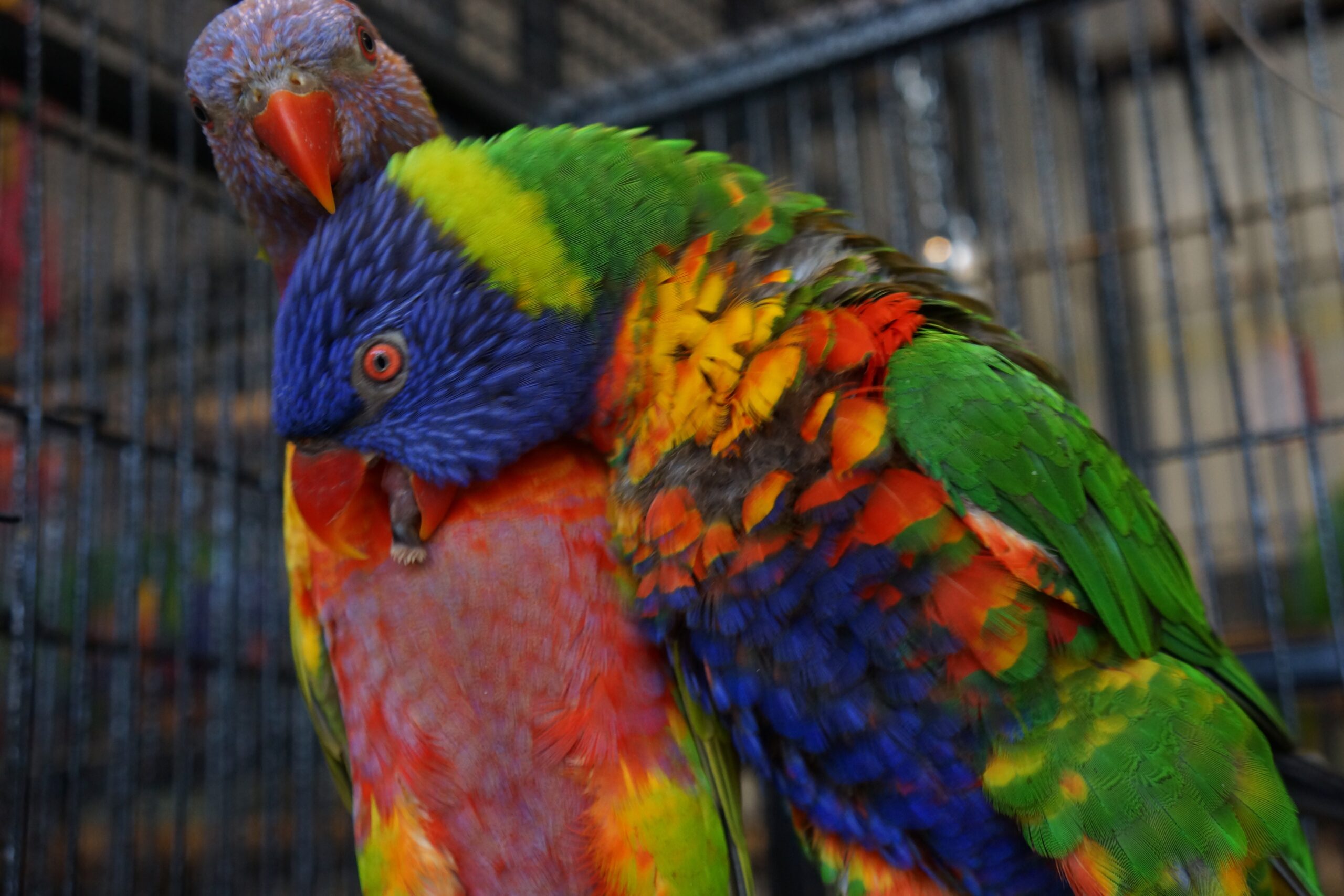
Avoid Reinforcing Hormonal Bird Behaviours
Remember the golden rule: If a behaviour is increasing in frequency, it is being reinforced.
If you don't know what reinforcement is, the quickest way to explain it is to think of it as a reward. If you engage in extra cuddling, accept the regurgitated food offerings, join in to the intense dancing, for example and the behaviour increases in frequency - your bird is finding your response rewarding.
By far the easiest way to avoid reinforcing hormonal bird behaviours is to recognise those behaviours and then divert them to something else. This is where your training history becomes important.
The more behaviours that you have trained to be on cue. The more you have in your weapons arsenal to divert unwanted behaviours.
What you're looking for is a behaviour that is incompatible with the undesirable behaviour. For example, a bird can't regurgitate at the same time as making fun sound effect noises. So a way of diverting that behaviour would be notice when your bird is about to regurgitate and divert the bird into a vocal game that you have on cue.
What Are Some Recognised Hormonal Triggers?
Most of this is common sense (yes I know common sense isn't common). If you don't want to have a pet displaying hormonal behaviours, you're going to want to avoid some of the following:
- Providing a nesting space. Dark enclosed spaces, nesting material, anything that makes a bird's environment more nesty. This is not the time to give your bird a cardboard box to play in. If they're burrowing under the couch - block off access.
- Inappropriate Food. Don't feed them something that looks like regurgitated bird food. Similarly high fat, sugary foods can send a bird's hormones into overdrive.
- Presence of a Perceived Mate. Ok this is a tough one. If you're the chosen one you can't exactly ban yourself from the house. All you can do here is limit mate like activities. If the mate is a bird - give them other activities to focus on. Keep them busy.
- Daylight Hours. Spring (and for that matter other season changes) is a known trigger. Part of this is believed to be due to the increase in daylight hours. Are you keeping your bird up too late? Shorten your bird's day if hormones are an issue. This doesn't necessarily mean covering your bird's cage in the living room either. That's for 2 reasons. 1) Covering the cage may fall under the category of creating a dark enclosed nesty space (another trigger!). 2) If you're awake in the living room - so are they. Maybe a darkened room is a better option?
- Inappropriate Touching. No I am not referring to that myth that you can't touch a bird anywhere other than its head. Any cuddly, affectionate handling can trigger hormones, including (and in some cases especially) the head. See this article for more details on that.
There are other possible triggers. These are just some general ones. You need to very carefully observe your own bird's behaviour and assess what is affecting it.
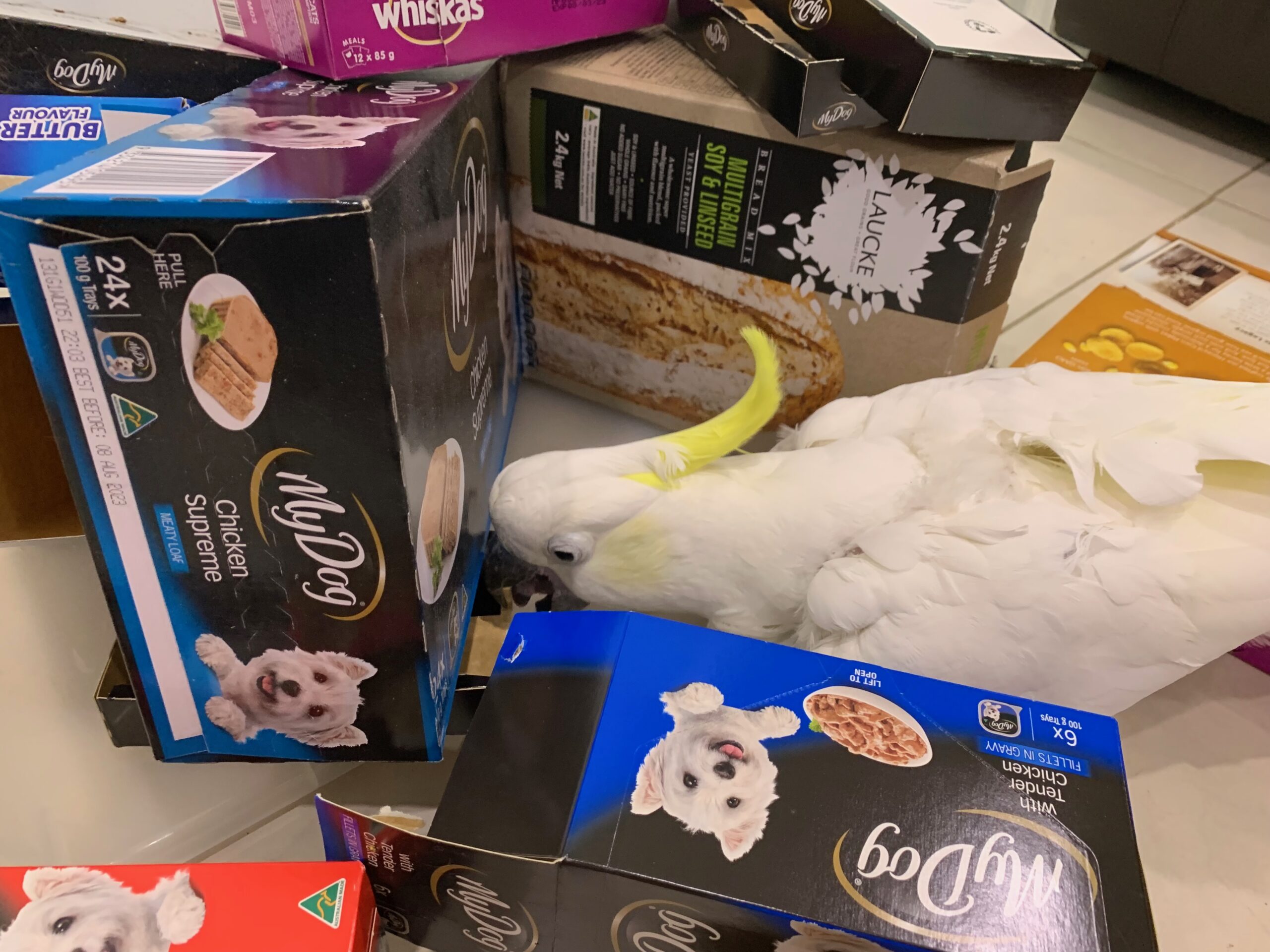
Should I See A Vet And Get A Hormone Implant?
The answer to this is maybe. It is something you can discuss with your vet. There are times when I will recommend this. There are genuine health situations where this may be necessary. Particularly in situations when egg laying or an illness is involved.
Hormone Implants are not a contraceptive, they're not a permanent fix and they're not foolproof. There are times when they have limited effect.
The average hormone implant lasts 3-6months. It is safest for a vet to give a hormone implant when your bird is under an anaesthetic as it's a pretty large needle.
I rarely (if ever) recommend a hormone implant on its own. If an implant is necessary, I usually recommend an intense period of training as well. Remembering the more behaviours you have on cue, the more you have available to use to divert a problem behaviour.
I sometimes recommend an implant to those that haven't trained their bird prior to the hormones kicking in, who are finding themselves actually in danger from aggressive hormone-related behaviour. (Flying, swooping, trying to remove a human's nose for example.) If the behaviour is severely dangerous, an implant may be effective in making training safer. The number one problem that I have with this, is that owners are often lured into a false sense of security. Thanks to the implant, their bird's hormone impulses change and so does the behaviour - usually an improvement. This often means that owners will decide not to follow through with training because they suddenly feel safe enough to not need it.
I have had more than one client show up after the three months of an implant's effectiveness are over, complaining the behaviour is back. It's incredibly frustrating when they have wasted that opportunity of safe training time. So if you do get an implant, do the work that should go along with it.
Is it Actually Hormones Or Is It The Age?
Sometimes babies regurgitate and demand cuddles and touching, in a way that would be considered sexual as an adult. More importantly, in a way that can become sexual as an adult.
One of the most common mistakes I see people make, is to misread juvenile behaviour or to believe juvenile behaviour will continue through to adulthood. This is particularly relevant for those who want to free fly their birds.
It's also relevant when you select your bird trainer. New "expert" bird trainers pop up all the time. The scariest ones are the brand new freeflight ones.
Some things are easier with babies. Anyone can look good training incredible behaviours in a macaw under the age of 7. My favourite bird to train, is a baby macaw. They're soooooo easy. In my opinion, no other bird compares. BUT they change drastically when they're an adult. It helps to have the groundwork in place but you need to be ready for adulthood. This goes for any breed of bird.
A freeflighted bird under the age of 4-7 is going to still have a baby bond that makes them return. Birds of that age are a lot more compliant. You can train them to do anything without a lot of trouble. To those who think they have a perfectly trained bird or think a trainer with a baby macaw is amazing... Come back to me when that bird is over 7 years old and then say you've never had any fly-offs or severe bites. Then I'll be impressed. A well-trained baby just means you're on the path, not that you're an amazing trainer and your bird is trained. Nothing upsets me more than seeing loving owners lured into a false sense of security and their birds end up in serious danger or dead. I've been doing this a long time and it breaks me a little every time I see a lost bird advert where a bird flew off and disappeared for good because someone thought they were properly trained. Or when an owner gets injured because that baby interaction you had has become sexual and isn't recognised in time to prevent disaster.
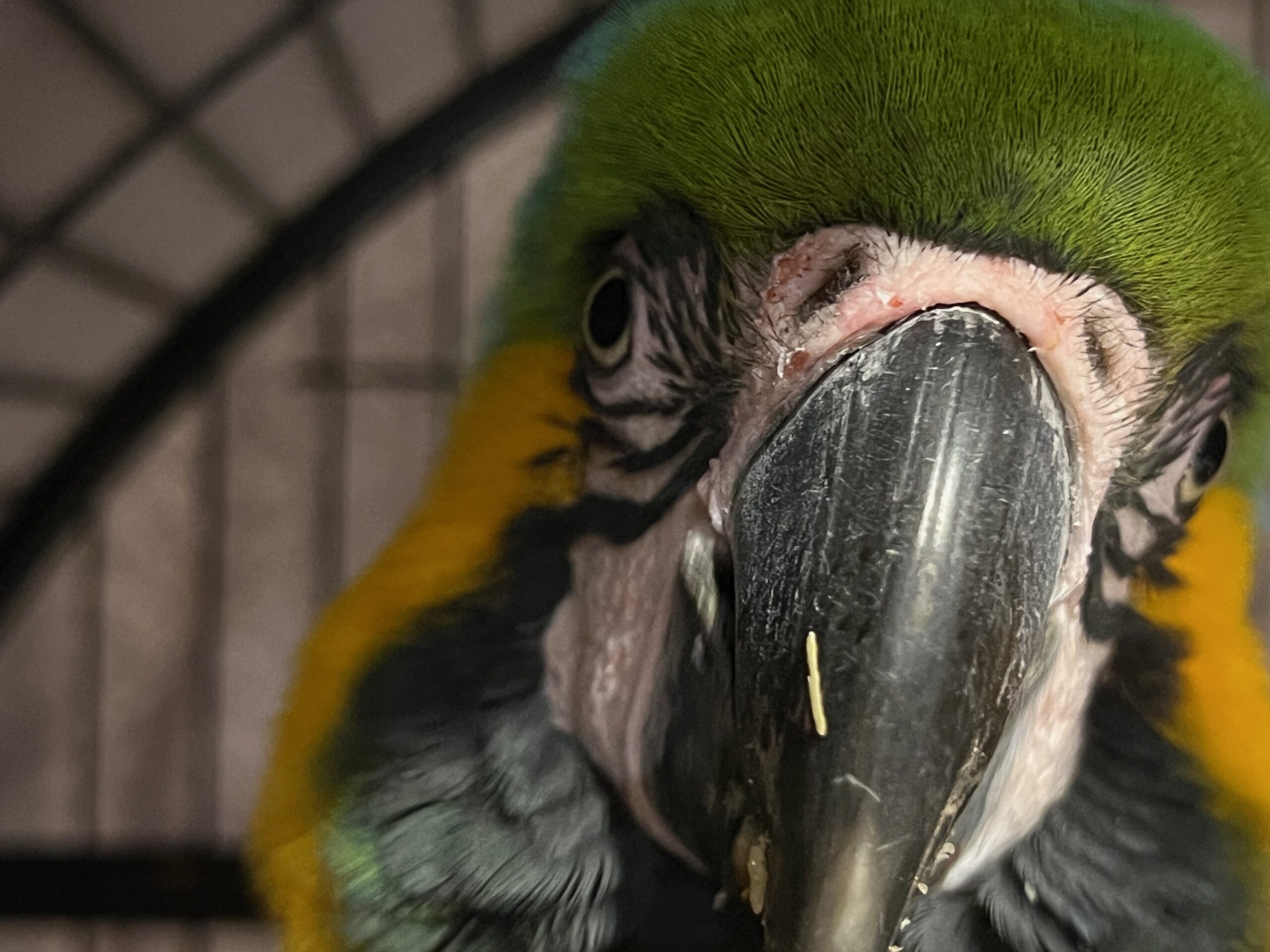
Help Is Available - Book a Consult.
A comprehensive behavioural plan is going to make hormones a lot more bearable. As much fun as it is to regale my friends with stories of that cockatiel that jumped on the back of a soft toy on display in my consult room... forcing me to explain that behaviour to the children the bird's owner had with them... (Awkward!) I prefer to get in early with training and put a plan in place. Make use of your bird's early years before those hormones kick in and get a plan in place.
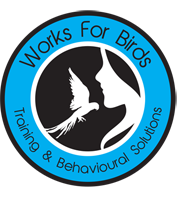
Very informative..